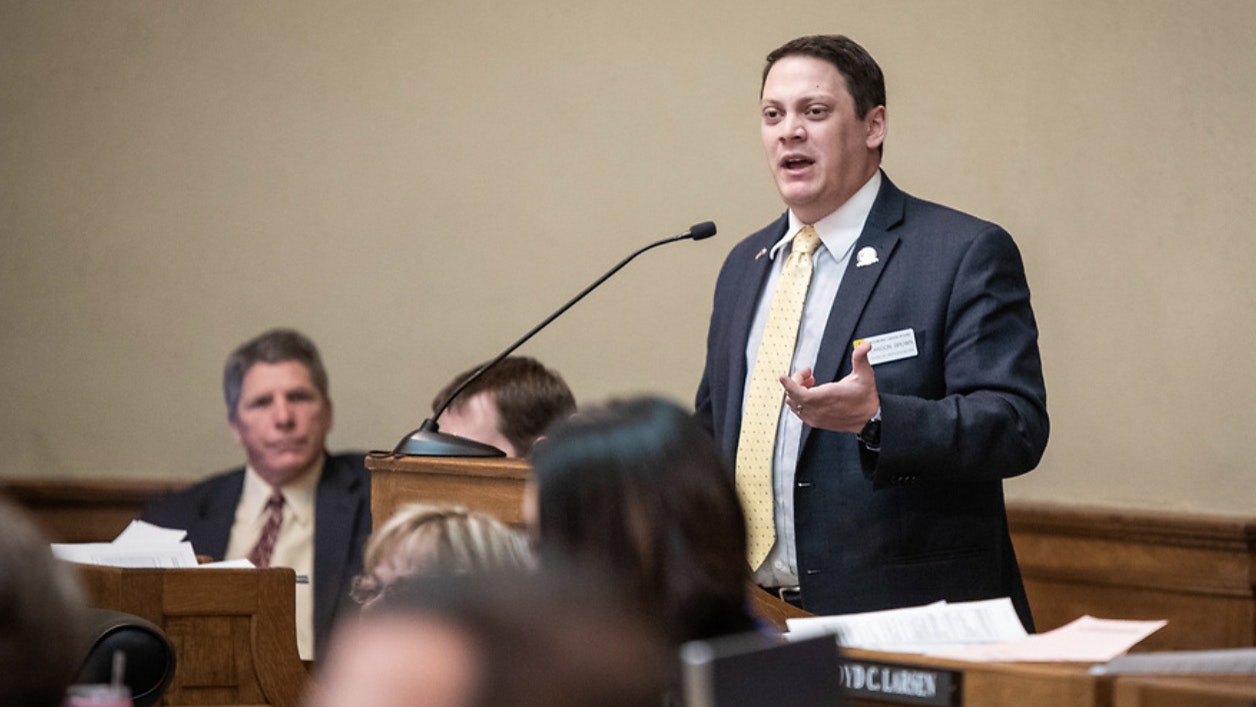By Clair McFarland, Cowboy State Daily
clair@cowboystatedaily.com
A Wyoming legislator from Cheyenne is proposing sweeping changes to Wyoming’s sales and use taxes.
Rep. Landon Brown, R-Cheyenne, told Cowboy State Daily on Wednesday that he’s reviving 2019 legislation that would cut sales and use taxes – but add more transactions to the tax base.
State sales and use taxes currently at 4% would drop to 2.5% under Brown’s plan, but Wyoming would reinstate its grocery tax and add taxes to services, such as lawn care and cosmetology.
The state first dismissed the grocery tax in its 2006 budget, then codified a more permanent grocery tax exemption the following year.
“This would be a more equitable form of taxation across the state of Wyoming,” said Brown, adding that taxing a broader range of transactions also would be “less volatile” for state and local revenues than relying on extractive industries.
Wyoming relies heavily on extractive industries, such as coal and oil, for revenue. Many energy providers are shunning coal in favor of renewables and the federal government heavily restricts the oil industry, especially on federal lands.
Brown noted the boom-bust cycles associated with these industries.
Surgeries, Quarrels Not Taxed
The new tax would not extend to medical and legal services, Brown said.
“Our state is one of the highest in the country (for medical fees),” he said. “If you go to have a knee replacement (and it’s taxed), all that’s going to do is inflate the cost of health care in the state.”
As for legal fees, Brown said they can be deeply personal in nature.
“When you start talking about wanting to go file a divorce or something, and it’s a very sticky situation – do we really think the government needs to take money from those representing kids in custody?” he asked rhetorically.
Brown’s proposition would not change other tax codes such as ad valorem or property taxes, he said.
The bill after which Brown is modeling the plan is House Bill 67 from 2019. He said its main proponent three years ago was Rep. Steve Harshman, R-Casper.
Harshman did not respond to a Wednesday voicemail requesting comment.
Brown said he has identified one downfall with his proposition: Small businesses providing services would have to spend time and effort developing the systems by which they’d remit the new taxes.
“The small businesses that do not remit sales tax right now, they’re going to have to remit sales tax – and there’s going to be time and effort put into that,” he said.
Services generally have not been taxed in Wyoming before.
Brown also theorized that reintroducing a grocery tax would help local governments.
Before groceries became tax exempt, those revenues were distributed to state and local governments at the same rates as other sales and use taxes, said Brenda Hensen, Wyoming Department of Revenue director.
Broaden The Base
Sen. Cale Case, R-Lander, estimated the local and state shares at roughly half each for the current sales and use tax, after additional local taxes are applied, he told Cowboy State Daily on Thursday.
Many counties have voted in extra sales and use taxes for local infrastructure or economic development.
Case, co-chairman of the Legislature’s Joint Revenue Committee, said he approves of the general concept of Brown’s idea – that Wyoming should broaden its tax base to lessen revenue volatility made worse by the state’s reliance on fossil fuels.
Case has long advocated for a gross receipts tax that would gain more revenue from large corporations such as big-box stores, while providing comparatively more exemption opportunities to smaller businesses whose owners live and shop in Wyoming. He also is a staunch advocate for increasing taxes on wind and solar energy production.





